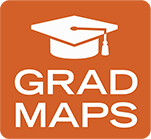
- Program Prerequisite: Must satisfy Teacher Education admission and licensure requirements (see Teacher Education Department ).
- Minor: Not required.
- Grade Requirements: A grade of “C-” or better in courses required for this major.
- Credit Hour Requirements: A total of 125-126 credit hours is required for graduation; 70 to 72 of these are required within the major. Teacher Education Licensure requires 9 credit hours of support courses and 24 credit hours of professional education courses (see Teacher Education Department). This major requires a total of 44 upper division credit hours (courses numbered 3000 and above); 17 of these are required Geosciences courses and 24 are Teacher Education courses.
- Program Code: 6011BS
- CIPC: 131316
Advisement
All Earth Science Teaching students are required to meet with a faculty advisor (see previous column) at least annually for course and program advisement. Call 801-626-7139 for more information or to schedule an appointment. In addition, teaching majors are encouraged to consult with an advisor in the Jerry and Vickie Moyes College of Education (call 801-626-6269). (Also refer to the Department Advisor Referral List.)
Advisor: Dr. Dave Matty, 801-626-7195; and Dr. Caitlin Tems, 801-626-7421.
 Use Grad MAPs to plan your degree
Use Grad MAPs to plan your degree
Admission Requirements
Declare your program of study (see Enrollment Services and Information ). Earth Science Teaching majors must satisfy Teacher Education admission and licensure requirements. (See Teacher Education Department .)
General Education
Refer to Degree Requirements for Bachelor of Science requirements. MATH 1050 or MATH 1080 is recommended for the Quantitative Literacy requirement. The following courses required for the Earth Science Teaching major will also satisfy general education requirements: BTNY 1203 , CHEM 1210 , GEO 1060 , GEO 1110 , GEO 1130 , PHYS 1040 , PHYS 2010 , and PHYS 2210 . The following required education support courses will also satisfy general education requirements: CHF 1500 and COMM 1020 or COMM 2110 .
Program Learning Outcomes
- Be able to collect data, apply algebraic and graphical techniques to analyze data, and interpret results. {Problem-Solving Skills}
- Be able to clearly express geoscience concepts orally and in writing, present results from laboratory and field investigations, and effectively incorporate appropriate maps and graphs into presentations and reports. {Communication Skills}
- Be proficient in the use of appropriate technologies - including basic computer skills (word processing, spread sheets), geospatial skills (GPS, accessing geospatial databases), and information technology (search, compile, and evaluate information from scientific literature and web resources). {Technology Skills}